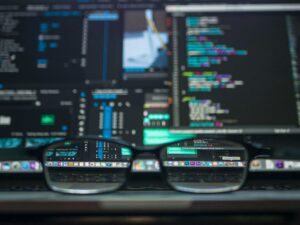Coding in Python has gained remarkable popularity, especially among those looking to enter the tech field. Success in mastering this programming language is not just about understanding its syntax and libraries. A strong foundation in mathematics can significantly enhance your coding skills and problem-solving abilities. Learning to code while possessing solid math skills can make navigating the logical structures of programming much more manageable. Let's explore how math skills correlate with coding in Python, the concepts you need to grasp, and how to bolster your math skills effectively.
The Importance of Mathematical Concepts in Coding
Mathematics serves as the backbone of computer science and programming. It provides tools to structure thoughts, analyze problems quantitatively, and develop algorithms effectively. Understanding mathematical concepts such as logic, sets, and functions can help coders to understand how Python operates behind the scenes. Logic plays a crucial role in programming. It is used in conditional statements and loops, essential for controlling the flow of a program.
Logical operators like AND, OR, and NOT are utilized in Python to form expressions that dictate the behavior of code based on varying criteria. Set theory, on the other hand, allows programmers to understand data groupings. Python’s data structures, such as lists, tuples, and dictionaries, often draw from set theory principles.
Finding Resources to Bolster Your Math Skills
With all these mathematical skills in mind, it’s essential to find resources that cater to their enhancement. Online courses, tutoring, and community forums can provide valuable guidance for learners at all levels. One great option is to consider resources like online summer courses for high schoolers, designed to reinforce both math and coding skills concurrently. These programs often focus on practical applications, enabling students to see the direct correlation between math principles and coding challenges.
Investing your time in these resources will refine your mathematical skills and pave the way for successful coding in Python. By building a solid foundation now, you’ll be better prepared to tackle more advanced topics with confidence.
Building a Solid Foundation with Algebra
Algebra is often deemed one of the most important math skills for programmers. It helps in understanding variables, allowing coders to make calculations and manipulations in their programs. In Python, variables can hold different data types such as integers, floats, and strings. Algebraic principles facilitate operations on these variables to derive meaningful results. Furthermore, algebra helps in function definition and manipulation, equipping programmers to create and implement functions that execute specific tasks within their code.
Equations, inequalities, and polynomial expressions are significant because they often represent logical conditions that must be met in programming. If you want a program to check a score against a passing grade, you'll rely on understanding inequalities. As you improve in algebra, you’ll find that writing conditional statements and using loops becomes much simpler.
Engaging with Geometry to Enhance Coding Skills
Geometry may seem distant from coding at first glance, but its principles are profoundly applicable. Programmers often exploit geometric concepts when dealing with graphics, gaming, and data visualization. Understanding shapes, spaces, and dimensions allows coders to develop more interactive and user-friendly interfaces. Python libraries like Matplotlib and Pygame heavily rely on geometric principles to render graphics.
A sound understanding of geometry enables programmers to use these libraries effectively, building compelling visual components for their applications. Triangles and vectors, often employed in physics calculations, are essential when developing simulations or games. As you dive deeper into the world of Python, revisiting geometry can enhance your capacity to think spatially and quantitatively, which is valuable in creating powerful code.
Statistics: The Link Between Data and Decision Making
Programming today greatly relies on data analysis and management. A background in statistics equips you to understand how to collect, analyze, and interpret data effectively. This knowledge is indispensable when writing Python code that parses and processes data. You’ll frequently encounter statistical terms such as mean, median, variance, and standard deviation when working with Python data structures.
Python’s libraries, like Pandas and NumPy, enable robust data manipulation and statistical analysis, but proficiency in statistics enhances your capability to utilize these tools properly. Understanding data distributions and probabilities is important for tasks involving data-driven decision-making. As programmers design algorithms, they often rely on statistical principles to predict outcomes based on historical data.
Logical Reasoning: The Core of Programming
Logical reasoning is arguably one of the most invaluable skills for any programmer. Similar to solving a mathematical proof, coding requires you to think logically, anticipate outcomes, and troubleshoot issues effectively. Logical reasoning encompasses evaluating conditions, determining truths, and inferring results based on available information.
When writing Python code, logical structures such as if-else statements, loops, and function definitions rely heavily on strong logic skills. These elements enable programmers to create complex algorithms that respond appropriately to various conditions in real-time. This skill comes into play in debugging, where logical reasoning is critical to identifying and fixing flaws in code.
By building a solid foundation in key mathematical areas, you’ll enhance your logical thinking, problem-solving abilities, and confidence when tackling coding challenges. With dedication and the right resources, your journey into Python can become both successful and rewarding.


